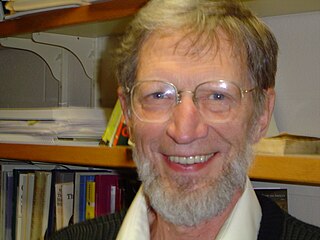 W
WAlvin Plantinga's free-will defense is a logical argument developed by the American analytic philosopher Alvin Plantinga and published in its final version in his 1977 book God, Freedom, and Evil. Plantinga's argument is a defense against the logical problem of evil as formulated by the philosopher J. L. Mackie beginning in 1955. Mackie's formulation of the logical problem of evil argued that three attributes of God, omniscience, omnipotence, and omnibenevolence, in orthodox Christian theism are logically incompatible with the existence of evil. In 1982, Mackie conceded that Plantinga's defense successfully refuted his argument in The Miracle of Theism, though he did not claim that the problem of evil had been put to rest.
 W
WThe atheism dispute was an event in German cultural history that lasted between 1798 and 1800 and had an effect on the German philosophy in the late 18th and the early 19th centuries.
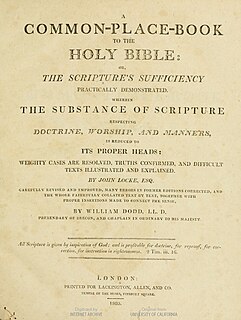 W
WChristian deism is a standpoint in the philosophy of religion stemming from Christianity. It refers to a deist who believes in the moral teachings—but not divinity—of Jesus. Corbett and Corbett (1999) cite John Adams and Thomas Jefferson as exemplars.
 W
WChristianity not Mysterious is a 1696 book by the radical thinker John Toland.
 W
WWhilst in the life of the intellect 'contemplation' refers to thinking profoundly about something, in the religious life contemplation is a kind of inner vision or seeing, transcendent of the intellect, facilitated by means of practices such as prayer or meditation.
 W
WDe Natura Deorum is a philosophical dialogue by Roman Academic Skeptic philosopher Cicero written in 45 BC. It is laid out in three books that discuss the theological views of the Hellenistic philosophies of Epicureanism, Stoicism, and Academic Skepticism.
 W
WEliot Deutsch was a philosopher, teacher, and writer. He made important contributions to the understanding and appreciation of Eastern philosophies in the West through his many works on comparative philosophy and aesthetics. He was a Professor Emeritus of Philosophy at the University of Hawaii.
 W
WDivine command theory is a meta-ethical theory which proposes that an action's status as morally good is equivalent to whether it is commanded by God. The theory asserts that what is moral is determined by God's commands and that for a person to be moral he is to follow God's commands. Followers of both monotheistic and polytheistic religions in ancient and modern times have often accepted the importance of God's commands in establishing morality.
 W
WIn theology, Divine Providence, or simply Providence, is God's intervention in the Universe. The term Divine Providence is also used as a title of God. A distinction is usually made between "general providence", which refers to God's continuous upholding of the existence and natural order of the Universe, and "special providence", which refers to God's extraordinary intervention in the life of people. Miracles generally fall in the latter category.
 W
WDivinity or the divine are things that are either related to, devoted to, or proceeding from a deity. What is or is not divine may be loosely defined, as it is used by different belief systems.
 W
WEcstasy is a subjective experience of total involvement of the subject, with an object of their awareness. In classical Greek literature it refers to removal of the mind or body "from its normal place of function."
 W
WEternal return is a concept that the universe and all existence and energy has been recurring, and will continue to recur, in a self-similar form an infinite number of times across infinite time or space.
 W
WEuthyphro, by Plato, is a Socratic dialogue whose events occur in the weeks before the trial of Socrates, between Socrates and Euthyphro. The dialogue covers subjects such as the meaning of piety and justice. As is common with Plato's earliest dialogues, it ends in aporia.
 W
WThe Euthyphro dilemma is found in Plato's dialogue Euthyphro, in which Socrates asks Euthyphro, "Is the pious loved by the gods because it is pious, or is it pious because it is loved by the gods?" (10a)
 W
WFree will is the capacity for agents to choose between different possible courses of action unimpeded.
 W
WHumanism is a philosophical stance that emphasizes the potential and agency of human beings, individually and socially. It considers human beings as the starting point for serious moral and philosophical inquiry. The meaning of the term humanism has fluctuated according to the successive intellectual movements which have identified with it. Generally, however, humanism refers to a perspective that affirms some notion of human freedom and progress. It views humanity as responsible for the promotion and development of individuals, espouses the equal and inherent dignity of all human beings, and emphasizes a concern for humans in relation to the world.
 W
WImplicit atheism and explicit atheism are types of atheism. In George H. Smith's Atheism: The Case Against God, "implicit atheism" is defined as "the absence of theistic belief without a conscious rejection of it", while "explicit atheism" is "the absence of theistic belief due to a conscious rejection of it". Explicit atheists have considered the idea of deities and have rejected belief that any exist. Implicit atheists, though they do not themselves maintain a belief in a god or gods, have not rejected the notion or have not considered it further.
 W
WIndifferentism, in the Catholic faith, is the belief held by some that no one religion or philosophy is superior to another. The Catholic Church ascribes indifferentism to many atheistic, materialistic, pantheistic, and agnostic philosophies. There are three basic types of indifferentism described by Catholic apologetics: absolute, restricted, and liberal or latitudinarian indifferentism. Indifferentism was first explicitly identified and opposed by Pope Gregory XVI, in his encyclical Mirari vos.
 W
WJacques Maritain was a French Catholic philosopher. Raised Protestant, he was agnostic before converting to Catholicism in 1906. An author of more than 60 books, he helped to revive Thomas Aquinas for modern times, and was influential in the development and drafting of the Universal Declaration of Human Rights. Pope Paul VI presented his "Message to Men of Thought and of Science" at the close of Vatican II to Maritain, his long-time friend and mentor. The same pope had seriously considered making him a lay cardinal, but Maritain rejected it. Maritain's interest and works spanned many aspects of philosophy, including aesthetics, political theory, philosophy of science, metaphysics, the nature of education, liturgy and ecclesiology.
 W
WLogos is a term in Western philosophy, psychology, rhetoric, and religion derived from a Greek word variously meaning "ground", "plea", "opinion", "expectation", "word", "speech", "account", "reason", "proportion", and "discourse". It became a technical term in Western philosophy beginning with Heraclitus, who used the term for a principle of order and knowledge.
 W
WThe mind is the set of faculties responsible for mental phenomena. Often the term is also identified with the phenomena themselves. These faculties include sensation, imagination, will, memory and thought. They are responsible for various mental phenomena, like perception, pain experience, belief, desire, intention and emotion. Various overlapping classifications of mental phenomena have been proposed. Important distinctions group them together according to whether they are sensory, propositional, intentional, conscious or occurrent. Minds were traditionally understood as substances but it is more common in the contemporary perspective to conceive them as properties or capacities possessed by humans and higher animals. Various competing definitions of the exact nature of the mind or mentality have been proposed. Epistemic definitions focus on the privileged epistemic access the subject has to these states. Consciousness-based approaches give primacy to the conscious mind and allow unconscious mental phenomena as part of the mind only to the extend that they stand in the right relation to the conscious mind. According to intentionality-based approaches, the power to refer to objects and to represent the world is the mark of the mental. For behaviorism, whether an entity has a mind only depends on how it behaves in response to external stimuli while functionalism defines mental states in terms of the causal roles they play. Central questions for the study of mind, like whether other entities besides humans have minds or how the relation between body and mind is to be conceived, are strongly influenced by the choice of one's definition.
 W
WA miracle is an event that seems inexplicable by natural or scientific laws. In various religions, a phenomenon that is characterized as miraculous is often attributed to the actions of a supernatural being, magic, a miracle worker, a saint, or a religious leader.
 W
WMonism attributes oneness or singleness to a concept e.g., existence. Various kinds of monism can be distinguished:Priority monism states that all existing things go back to a source that is distinct from them; e.g., in Neoplatonism everything is derived from The One. In this view only one thing is ontologically basic or prior to everything else. Existence monism posits that, strictly speaking, there exists only a single thing, the universe, which can only be artificially and arbitrarily divided into many things. Substance monism asserts that a variety of existing things can be explained in terms of a single reality or substance. Substance monism posits that only one kind of stuff exists, although many things may be made up of this stuff, e.g., matter or mind. Dual-aspect monism is the view that the mental and the physical are two aspects of, or perspectives on, the same substance.
 W
WMysticism is popularly known as becoming one with God or the Absolute, but may refer to any kind of ecstasy or altered state of consciousness which is given a religious or spiritual meaning. It may also refer to the attainment of insight in ultimate or hidden truths, and to human transformation supported by various practices and experiences.
 W
WThe Name of the Rose is the 1980 debut novel by Italian author Umberto Eco. It is a historical murder mystery set in an Italian monastery in the year 1327, and an intellectual mystery combining semiotics in fiction, biblical analysis, medieval studies, and literary theory. It was translated into English by William Weaver in 1983.
 W
WIn spirituality, nondualism, also called non-duality, means "not two" or "one undivided without a second". Nondualism primarily refers to a mature state of consciousness, in which the dichotomy of I-other is "transcended", and awareness is described as "centerless" and "without dichotomies". Although this state of consciousness may seem to appear spontaneous, it usually follows prolonged preparation through ascetic or meditative/contemplative practice, which may include ethical injunctions.
 W
WNyayakusumanjali is a treatise in Sanskrit composed by 10th century CE Indian logician and philosopher Udayana. The work has been described as codification of the Hindu arguments for the existence of God. It has been noted that this treatise is the most elaborate and the most fundamental work of the Nyaya-Vaiseshika school on the Isvara doctrine.
 W
WThe Latin phrase odium theologicum is the name originally given to the often intense anger and hatred generated by disputes over theology. It has also been adopted to describe non-theological disputes of a rancorous nature.
 W
WOmnibenevolence is defined by the Oxford English Dictionary as "unlimited or infinite benevolence". Some philosophers have argued that it is impossible, or at least improbable, for a deity to exhibit such a property alongside omniscience and omnipotence, as a result of the problem of evil. However, some philosophers, such as Alvin Plantinga, argue the plausibility of co-existence.
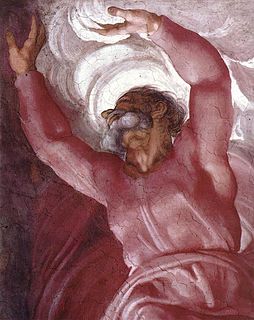 W
WOmnipotence is the quality of having unlimited power and potential. Monotheistic religions generally attribute omnipotence only to the deity of their faith. In the monotheistic philosophies of Abrahamic religions, omnipotence is often listed as one of a deity's characteristics among many, including omniscience, omnipresence, and omnibenevolence. The presence of all these properties in a single entity has given rise to considerable theological debate, prominently including the problem of theodicy, the question of why such a deity would permit the manifestation of evil. It is accepted in philosophy and science that omnipotence can never be effectively understood.
 W
WThe omnipotence paradox is a family of paradoxes that arise with some understandings of the term omnipotent. The paradox arises, for example, if one assumes that an omnipotent being has no limits and is capable of realizing any outcome, even a logically contradictory one such as creating a square circle. Atheological arguments based on the omnipotence paradox are sometimes described as evidence for countering theism. Other possible resolutions to the paradox hinge on the definition of omnipotence applied and the nature of God regarding this application and whether omnipotence is directed toward God himself or outward toward his external surroundings.
 W
WPersian Letters is a literary work, published in 1721, by Charles de Secondat, baron de Montesquieu, recounting the experiences of two fictional Persian noblemen, Usbek and Rica, who are traveling through France.
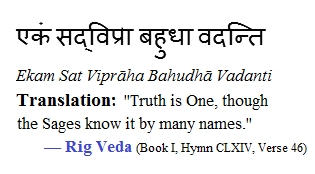 W
WPrincipled Distance is a new model of secularism given by Rajeev Bhargava. the separation of government institutions and persons mandated to represent the state from religious institutions and religious dignitaries. He says that Indian secularism did not erect a strict wall of separation, but proposed a 'principled distance' between religion and state. Moreover, by balancing the claims of individuals and religious communities, it never intended a bludgeoning privatization of religion. In India, secularism means equal treatment of all religions. Religion in India continues to assert its political authority in matters of personal law. The western model of secularism is criticized in India for being an outdated concept as Rajeev argued that since Western model was developed when society was more homogeneous but since in the era of globalization, society is becoming more heterogeneous therefore a new concept, suitable for the present situation, is needed. He even argued that since Europe itself is no more homogeneous hence West should also follow the principled distance model which on one hand respects the diversity and at the same time empowers the state to interfere in case of any discrimination in the name of religion.
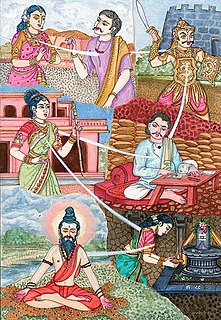 W
WReincarnation, also known as rebirth or transmigration, is the philosophical or religious concept that the non-physical essence of a living being begins a new life in a different physical form or body after biological death. Resurrection is a similar process hypothesized by some religions, in which a soul comes back to life in the same body. In most beliefs involving reincarnation, the soul is seen as immortal and the only thing that becomes perishable is the body. Upon death, the soul becomes transmigrated into a new infant to live again. The term transmigration means passing of soul from one body to another after-death.
 W
WThe Religion of the Future is a book by the philosopher and politician Roberto Mangabeira Unger. In the book, he argues that humanity is in need of a religious revolution that dispenses with the concept of God and elements of the supernatural, a revolution that expands individual and collective human empowerment by fostering a condition he calls "deep freedom"—a life of creativity, risk, experiment, and meaningful personal connection—protected by structure-revising social and political structures of an empowered democracy hospitable to the context-breaking capacities inherent in human life.
 W
WRussell's teapot is an analogy, formulated by the philosopher Bertrand Russell (1872–1970), to illustrate that the philosophic burden of proof lies upon a person making unfalsifiable claims, rather than shifting the burden of disproof to others.
 W
WThe relationship between religion and science involves discussions that interconnect the study of the natural world, history, philosophy and theology.
 W
WSpiritual naturalism, or naturalistic spirituality combines a naturalist approach to spiritual ways of looking at the world. Spiritual naturalism may have first been proposed by Joris-Karl Huysmans in 1895 in his book En Route.Coming into prominence as a writer during the 1870s, Huysmans quickly established himself among a rising group of writers, the so-called Naturalist school, of whom Émile Zola was the acknowledged head...With Là-bas (1891), a novel which reflected the aesthetics of the spiritualist revival and the contemporary interest in the occult, Huysmans formulated for the first time an aesthetic theory which sought to synthesize the mundane and the transcendent: "spiritual Naturalism".
 W
WSum: Forty Tales from the Afterlives, also simply called Sum, is a work of speculative fiction by the neuroscientist David Eagleman. It is in press in 28 languages as of 2016. The Los Angeles Times described it as "teeming, writhing with imagination." Barnes and Noble named it one of the Best Books of 2009.
 W
WTheistic Humanism is the combination of humanistic ideals, particularly the idea that ideals and morals stem from society, with a belief in the supernatural and transcendental.
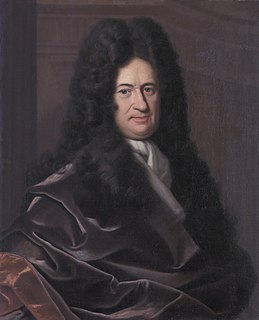 W
WTheodicy means vindication of God. It is to answer the question of why a good God permits the manifestation of evil, thus resolving the issue of the problem of evil. Some theodicies also address the evidential problem of evil by attempting "to make the existence of an all-knowing, all-powerful and all-good or omnibenevolent God consistent with the existence of evil or suffering in the world." Unlike a defense, which tries to demonstrate that God's existence is logically possible in the light of evil, a theodicy attempts to provide a framework wherein God's existence is also plausible. The German philosopher and mathematician Gottfried Leibniz coined the term "theodicy" in 1710 in his work Théodicée, though various responses to the problem of evil had been previously proposed. The British philosopher John Hick traced the history of moral theodicy in his 1966 work, Evil and the God of Love, identifying three major traditions:the Plotinian theodicy, named after Plotinus the Augustinian theodicy, which Hick based on the writings of Augustine of Hippo the Irenaean theodicy, which Hick developed, based on the thinking of St. Irenaeus
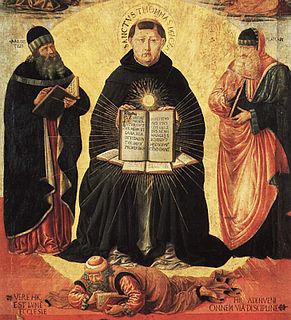 W
WThomistic sacramental theology is St. Thomas Aquinas's theology of the sacraments of the Catholic Church. It can be found through his writings in the Summa contra Gentiles and in the Summa Theologiæ. As can be seen, Aquinas relied heavily on Scriptural passages, as well as the writings of various Church Fathers. St. Augustine says : "The visible sacrifice is the sacrament. This is the sacred sign of the invisible sacrifice. A thing is called a sacrament, either by having a certain hidden sanctity, and in this sense a sacrament is a sacred secret; or from having some relationship to this sanctity. A sacrament is a sign. Moreover, it is a sacred sign. Divine Wisdom provides for each thing according to its mode. Wisdom 7,1 : "she... ordered all things sweetly"; and from Matthew 25,15: "[she] gave to everyone according to his proper ability." It is a part of human nature to acquire knowledge of the intelligible from the sensible. A sign is the way one obtains knowledge of something else. The sacraments are the signs by which humans gain knowledge of spiritual and intelligible goods. Ephesians 5, 25-26: "Christ loved the Church, and delivered Himself up for it; that He might sanctify it, cleansing it by the laver of water in the word of life." St. Augustine says : "The word is added to the element, and this becomes the sacrament." Augustine : "It is impossible to keep men together in one religious denomination, whether true or false, except they be united by means of visible signs or sacraments." It is necessary for salvation that humans united together in the name of true religion. Therefore, sacraments are necessary for man's salvation. There are three reasons sacraments are necessary to the salvation of humans: First, it is in the nature of humans to be led by things corporal and sensible to things that are spiritual and intelligible. Second, by sinning, humans have subjected themselves to corporeal things. Therefore, it is proper that the remedy have a corporeal side, leading to the spiritual. Third, humans are prone to direct their activity towards material things. Sacraments are made necessary because humans have sinned. The main effect of the sacraments is grace, in particular those involving Virtues and Gifts. Grace perfects the soul and allow participation in the Divine Nature. Furthermore, the effects of the sacraments is justification. This is an interior effect. Romans 8,33: "God justifies." Therefore, the effects of the sacraments is justification. This is an interior effect. The power of the sacraments is from God, alone. It does not matter that the minister of the sacraments may be a sinner, or evil. Augustine : "He upon Whom you shall see the Spirit, ...that John did not know that our Lord, having the authority of baptizing, would keep it to Himself, but that the ministry would certainly pass to both good and evil men...What is a bad minister to you, wherever the Lord is good?"
 W
WUnitarian Universalism (UU) is a liberal religion characterized by a "free and responsible search for truth and meaning". Unitarian Universalists assert no creed, but instead are unified by their shared search for spiritual growth, guided by a dynamic, "living tradition". Currently, these traditions are summarized by the Six Sources and Seven Principles of Unitarian Universalism, documents recognized by all congregations who choose to be a part of the Unitarian Universalist Association. These documents are 'living', meaning always open for revisiting and reworking. Unitarian Universalist (U.U.) congregations include many atheists, agnostics, and theists within their membership—and there are U.U. churches, fellowships, congregations, and societies around the world. The roots of Unitarian Universalism lie in liberal Christianity, specifically unitarianism and universalism. Unitarian Universalists state that from these traditions comes a deep regard for intellectual freedom and inclusive love. Congregations and members seek inspiration and derive insight from all major world religions.
 W
WThe watchmaker analogy or watchmaker argument is a teleological argument which states, by way of an analogy, that a design implies a designer, especially intelligent design an intelligent designer, i.e. a creator deity. The analogy has played a prominent role in natural theology and the "argument from design," where it was used to support arguments for the existence of God and for the intelligent design of the universe, in both Christianity and Deism.
 W
WNegative atheism, also called weak atheism and soft atheism, is any type of atheism where a person does not believe in the existence of any deities but does not necessarily explicitly assert that there are none. Positive atheism, also called strong atheism and hard atheism, is the form of atheism that additionally asserts that no deities exist.